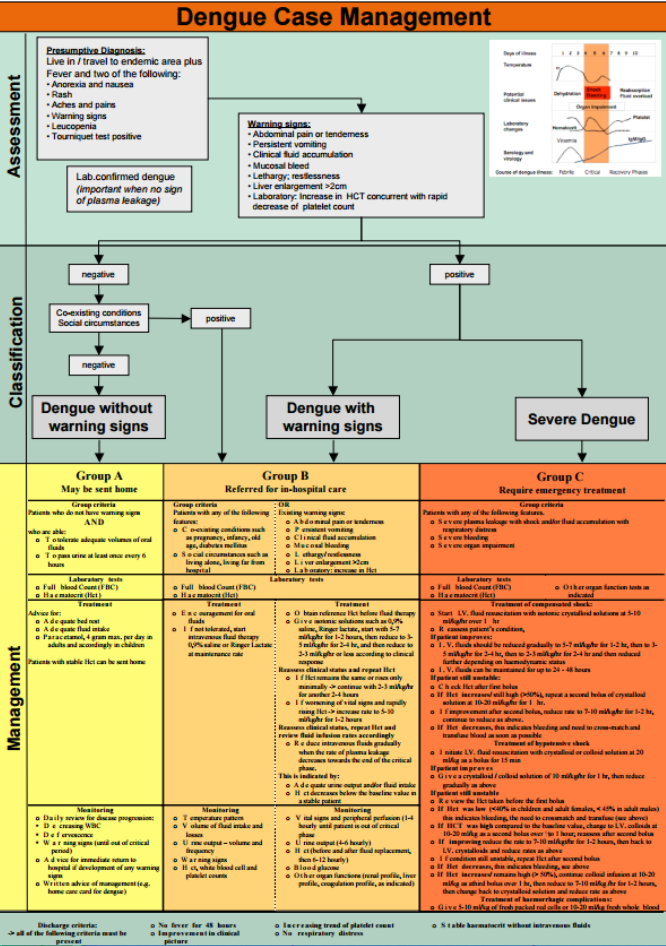Dear Auntie:
If you or someone you love has dengue, you may want to know what the nurse who is at your bedside most of the day is doing to take care of you.
Let's talk about the major priorities of nursing care for patient's with Dengue Fever.
Nurses are primarily concerned about managing the side effects of the disease while other treatments given to you by physicians help to stop the dengue virus from spreading in your body.
Let's talk about what the nurse might do to help manage the symptoms of dengue:
1. Nausea,vomiting: The nurse might offer a prescribed medication to help control these feelings and assist the dengue patient to find a diet that they can tolerate that does not cause feelings of nausea.
2. Constipation: The nurse will suggest walking to help relieve constipation
3. Bleeding: The nurse will look for the source of the bleeding and stop it if possible. However, with dengue the bleeding may be from multiple sources or internal. In that case, the nurse will administer IV saline or red blood cells by order of the physician. The nurse will also try to minimize chances for bleeding by having the patient brush his or her teeth with a soft tooth brush or soft sponge, reduce the chances of the patient falling and bruising himself, offer stool softeners (not to the extent that the patient gets diarrhea), the nurse will also suggest that the patient try not to blow the nose to prevent nose bleeds.
4. Joint and Muscle Pains: The nurse will offer inflammation reducing medications by order of the physician, such as acetaminophen or ibuprofen. These may help to reduce the pain. The nurse will also suggest a mixture of warm and cold on the joints to help reduce the pain.
5. Signs of Shock: The nurse will monitor your blood pressure, temperature, pulses, and capillary refill time frequently to ensure that the fluid volume in the body is not so low that the patient is going into hypovolemic (too little volume) shock. The nurse will also monitor anxiety level because this can be a sign of shock. If the nurse feels that the fluid volume in the body is too low based on these indicators, normal saline will be given through an IV.
Those are just some of the things the nurse will be doing at the bedside to take care of anyone with dengue fever. The goal is to prevent bleeding, fluid loss, and shock as well as reduce the amount of dengue virus in the body so that the patient begins to feel better and can be sent home from the hospital.
References:
1. Nursing Management for Dengue Hemorrhagic Fever. Nanda Care Plan. Available from: http://nandacareplan.blogspot.com/2013/12/nursing-management-for-dengue-fever.html Accessed: May 5, 2015
If you or someone you love has dengue, you may want to know what the nurse who is at your bedside most of the day is doing to take care of you.
Let's talk about the major priorities of nursing care for patient's with Dengue Fever.
Nurses are primarily concerned about managing the side effects of the disease while other treatments given to you by physicians help to stop the dengue virus from spreading in your body.
Let's talk about what the nurse might do to help manage the symptoms of dengue:
1. Nausea,vomiting: The nurse might offer a prescribed medication to help control these feelings and assist the dengue patient to find a diet that they can tolerate that does not cause feelings of nausea.
2. Constipation: The nurse will suggest walking to help relieve constipation
3. Bleeding: The nurse will look for the source of the bleeding and stop it if possible. However, with dengue the bleeding may be from multiple sources or internal. In that case, the nurse will administer IV saline or red blood cells by order of the physician. The nurse will also try to minimize chances for bleeding by having the patient brush his or her teeth with a soft tooth brush or soft sponge, reduce the chances of the patient falling and bruising himself, offer stool softeners (not to the extent that the patient gets diarrhea), the nurse will also suggest that the patient try not to blow the nose to prevent nose bleeds.
4. Joint and Muscle Pains: The nurse will offer inflammation reducing medications by order of the physician, such as acetaminophen or ibuprofen. These may help to reduce the pain. The nurse will also suggest a mixture of warm and cold on the joints to help reduce the pain.
5. Signs of Shock: The nurse will monitor your blood pressure, temperature, pulses, and capillary refill time frequently to ensure that the fluid volume in the body is not so low that the patient is going into hypovolemic (too little volume) shock. The nurse will also monitor anxiety level because this can be a sign of shock. If the nurse feels that the fluid volume in the body is too low based on these indicators, normal saline will be given through an IV.
Those are just some of the things the nurse will be doing at the bedside to take care of anyone with dengue fever. The goal is to prevent bleeding, fluid loss, and shock as well as reduce the amount of dengue virus in the body so that the patient begins to feel better and can be sent home from the hospital.
References:
1. Nursing Management for Dengue Hemorrhagic Fever. Nanda Care Plan. Available from: http://nandacareplan.blogspot.com/2013/12/nursing-management-for-dengue-fever.html Accessed: May 5, 2015

